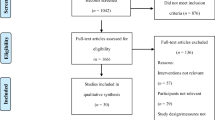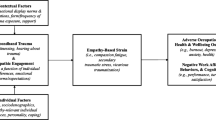Abstract
Serious medical disputes have been causing a wide range of negative impacts. Medical staff may undergo a variety of psychological crises after encountering or witnessing serious medical disputes. This paper first found through qualitative research that the main cause of psychological crises among medical staff was a decreased sense of security. As a result, the key to solving the psychological crises of medical staff is to analyze the factors affecting their psychological security and propose specific measures to protect their psychological security. Using empirical research, this paper revealed that the security risk of serious medical disputes was negatively correlated with factors such as security check equipment, security staff coping ability, the hospital’s external environment, medical staff training, patient qualification, and medical feedback channels. After probing into the antecedents and consequences of serious medical disputes in hospitals, this paper proposes comprehensive measures to reduce the negative impacts of serious medical disputes, as well as to intervene and prevent the psychological crises of medical staff under the influence of serious medical disputes.
Similar content being viewed by others
Data availability
The authors will share data from the study upon reasonable request to the corresponding author.
References
Brown, P., Elston, M. A., & Gabe, J. (2015). From patient deference towards negotiated and precarious informality: an Eliasian analysis of English general practitioners’ understandings of changing patient relations. Social Science & Medicine, 146, 164–172.
Bryde Christensen, A., Pavlo, A. J., Davidson, L., et al. (2023). Does one treatment benefit all? Patients’ experiences of standardized group CBT for anxiety and depression. Current Psychology, 42, 16815–16829. https://doi.org/10.1007/s12144-022-02820-w
Campfield, K. M., & Hills, A. M. (2021). Effect of timing of Critical Incident Stress Debriefing (CISD) on posttraumatic symptoms. Journal of Traumatic Stress, 14(2), 327–340.
Choi, E., & Choi, Y. (2023). The early emotional responses and central issues of people in the epicenter of the COVID-19 pandemic: an analysis from twitter text mining. International Journal of Mental Health Promotion, 25(1), 21–29.
Dehghan-Chaloshtari, S., & Ghodousi, A. (2020). Factors and characteristics of workplace violence against nurses: a study in Iran. Journal of Interpersonal Violence, 35(1–2), 496–509.
Fugard, A. J. B., & Potts, H. W. W. (2015). Supporting thinking on sample sizes for thematic analysis: a quantitative tool. International Journal of Social Research Methodology, 18(6), 669–684. https://doi.org/10.1080/13645579.2015.1005453
Guo, B., Zhou, H. Y., Cao, R. W., Xu, X. R., Feng, X. Q., et al. (2022). Analysis on relationship between professional identity, social support, doctor-patient relationship and working stress among clinicians. Occupation and Health, 38(2), 197–209.
Haden, S. C., Scarpa, A., & Jones, R. T. (2007). Posttraumatic stress disorder symptoms and injury: the moderating role of perceived social support and coping for young adults. Personality and Individual Differences, 42(7), 1187–1198.
He, J. W., & Qian, J. W. (2016). Explaining medical disputes in Chinese public hospitals: the doctor-patient relationship and its implications for health policy reforms. Health Economics, Policy and Law, 11(4), 359–378.
Jiang, R. H., Ma, H., & Lyu, Q. Y. (2007). Application of emergency stress interview in psychological crisis intervention. Chinese Mental Health Journal, 21(7), 496–498.
Jiang, H. R., Yu, X. H., Gao, S., Shang, P. P., Cao, P., et al. (2022). Influence of doctor-patient relationship on perceived stress of grassroots medical staff in Jilin Province. Medicine and Society, 35(8), 105–109.
Kalliainen, L. K., & Lichtman, D. M. (2010). Current issues in the physician-patient relationship. Journal of Hand Surgery, 35(12), 2126–2129.
Kanten, P., & Ulker, F. (2014). The effects of mental health problems of nurses and doctors on their professional commitment and work engagement levels. Mediterranean Journal of Social Sciences, 5(19), 476–493.
Lang, J. (2021). Exploration and application of governance strategies for violence in medical institutions. China Health Law., 29(04), 133–138.
Liebman, B. L. (2013). Malpractice mobs: medical dispute resolution in China. Columbia Law Review, 113(1), 181–264.
Locke, R., & Lees, A. (2020). A literature review of interventions to reduce stress in doctors. Perspectives in Public Health, 140(1), 38–53.
Pariona-Cabrera, P., Cavanagh, J., & Bartram, T. (2020). Workplace violence against nurses in health care and the role of human resource management: a systematic review of the literature. Journal of Advanced Nursing, 76(7), 1581–1593.
Rehman, U., Shahnawaz, M. G., Khan, N. H., Kharshiing, K. D., Khursheed, M., Gupta, K., et al. (2020). Depression, anxiety and stress among Indians in times of Covid-19 lockdown. Community Mental Health Journal, 57(1), 1–7.
Shabbir, A., Malik, S. A., & Malik, S. A. (2016). Measuring patients’ healthcare service quality perceptions, satisfaction, and loyalty in public and private sector hospitals in Pakistan. International Journal of Quality & Reliability Management, 33(5), 538–557.
Shah, S. J., & Huang, C. (2023). Venting out violence exposure: nurses’ resource replenishment causes the life-partner to deplete. Current Psychology, 1–11. https://doi.org/10.1007/s12144-023-04517-0
Shi, L., Wang, L., Jia, X., Li, Z., Mu, H., Liu, X., Peng, B., Li, A., & Fan, L. (2017). Prevalence and correlates of symptoms of posttraumatic stress disorder among Chinese healthcare workers exposed to physical violence: a cross-sectional study. BMJ Open, 7(7), e016810. https://doi.org/10.1136/bmjopen-2017-016810
Smorti, M., Ginobbi, F., Simoncini, T., et al. (2023). Anxiety and depression in women hospitalized due to high-risk pregnancy: an integrative quantitative and qualitative study. Current Psychology, 42, 5570–5579.
Su, Y. K., Kyung, M. L., Soo, J. K., Go-Un, K., & Boyoung, K. (2020). Embracing and growing as a peer support provider: an analysis of participants’ experience in a peer support program based on the recovery model of mental illness. International Journal of Mental Health Promotion, 22(4), 261–270.
Tan, E. C. H., & Chen, D. R. (2019). Second victim: Malpractice disputes and quality of life among primary care physicians. Journal of the Formosan Medical Association, 118(2), 619–627.
Toader, E., & Damir, D. (2014). Medical responsibility as moral and ethical foundation for the professional conduit. Procedia - Social and Behavioral Sciences, 149, 955–961.
Wang, Y. (2019). Public security organs’ strategies for reasonable disposal of “medical disturbances.” Journal of Guangxi Police College, 32(6), 75–79.
Weisbrod, A. V., Bohman, L. C., & Ramdial, K. J. (2023). From theory to practice: a novel meditation program at a global corporation. Current Psychology, 1–18. https://doi.org/10.1007/s12144-023-04516-1
Zeidan, F., Johnson, S. K., Diamond, B. J., David, Z., & Goolkasian, P. (2010). Mindfulness meditation improves cognition: evidence of brief mental training. Consciousness and Cognition, 19(2), 597–605.
Zhang, L. L., & Qian, M. Y. (2004). National mental health service system for major disasters and crises in the United States. Chinese Mental Health Journal, 18(6), 395–398.
Zhang, L., Zhao, C. X., Ren, Z. H., & Jiang, G. R. (2020). Distance-delivered psychological intervention for healthcare workers in major public health emergencies. Journal of Central China Normal University (humanities and Social Sciences), 59(6), 179–186.
Funding
This work was supported by the Fundamental Research Funds for the Central Universities (2022JKF02052).
Author information
Authors and Affiliations
Contributions
Study conception and design: Mengxing Zhang;
Data collection and interpretation of results: Lanxi Xu.
All authors reviewed the results and approved the final version of the manuscript. Correspondence to Mengxing Zhang.
Corresponding author
Ethics declarations
Ethical standard
The authors declare all research was conducted in accordance with ethical standards. Participants provided oral informed consent prior to taking part in the study. This article does not contain any studies with animals performed.
Conflict of interest
The authors declare that they have no conflict of interest.
Additional information
Publisher's Note
Springer Nature remains neutral with regard to jurisdictional claims in published maps and institutional affiliations.
Rights and permissions
Springer Nature or its licensor (e.g. a society or other partner) holds exclusive rights to this article under a publishing agreement with the author(s) or other rightsholder(s); author self-archiving of the accepted manuscript version of this article is solely governed by the terms of such publishing agreement and applicable law.
About this article
Cite this article
Zhang, M., Xu, L. Interventions to promote psychological recovery among medical staff following serious medical disputes: a qualitative and quantitative analysis. Curr Psychol (2024). https://doi.org/10.1007/s12144-024-05816-w
Accepted:
Published:
DOI: https://doi.org/10.1007/s12144-024-05816-w




